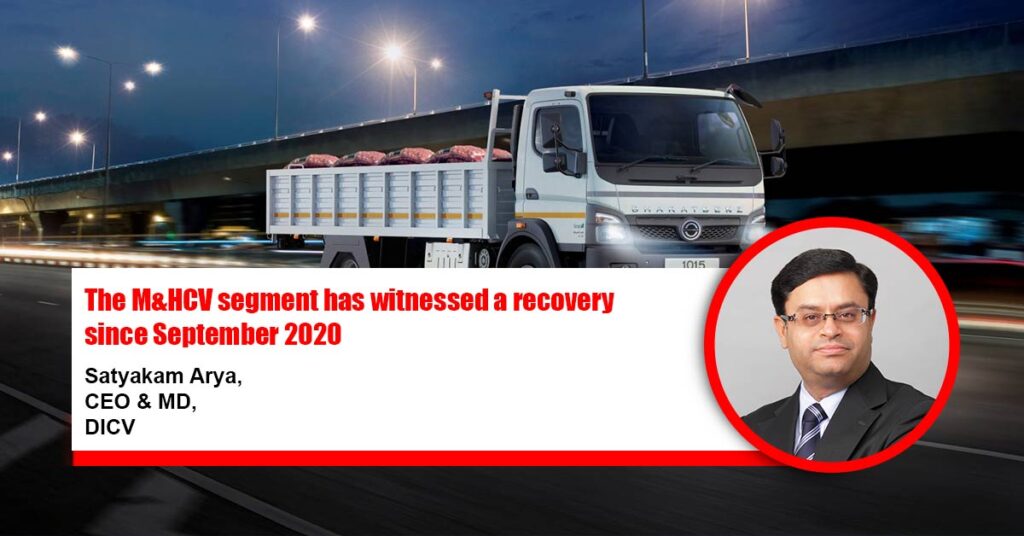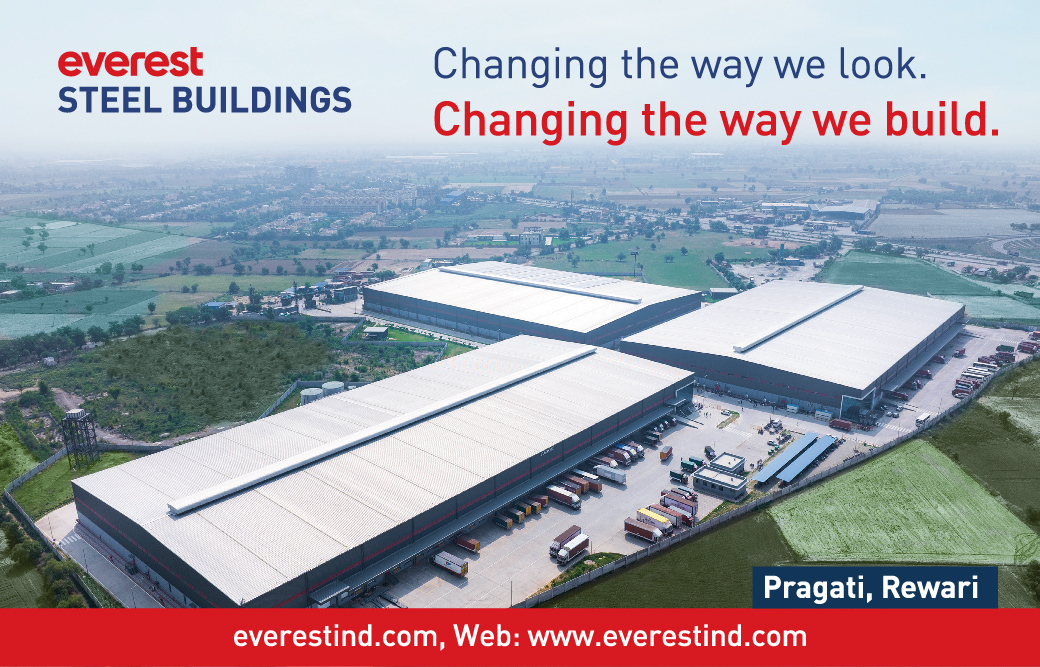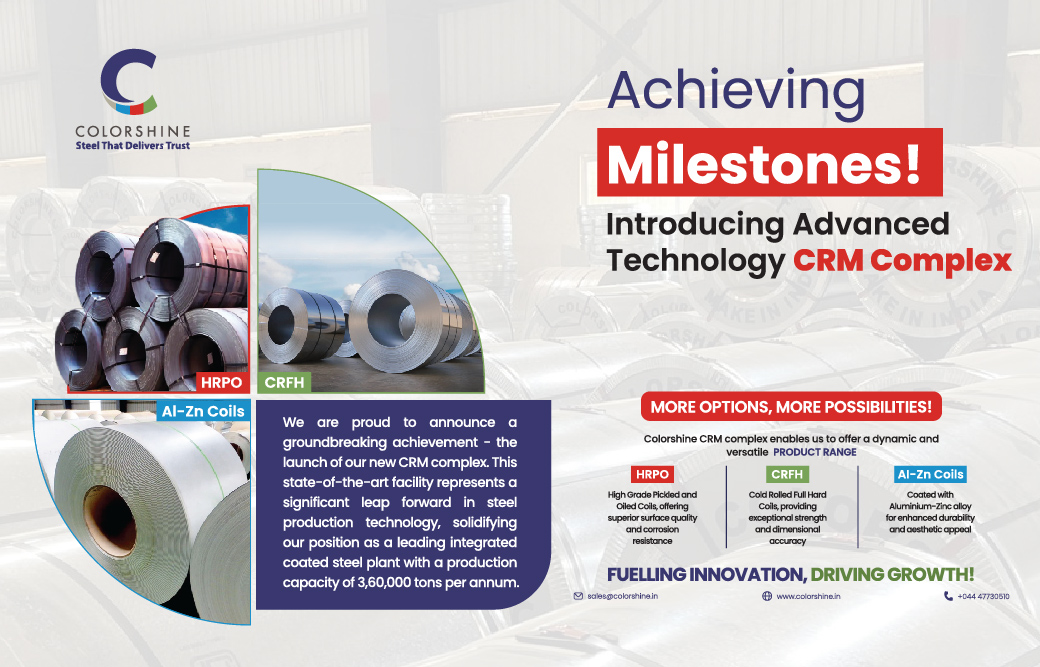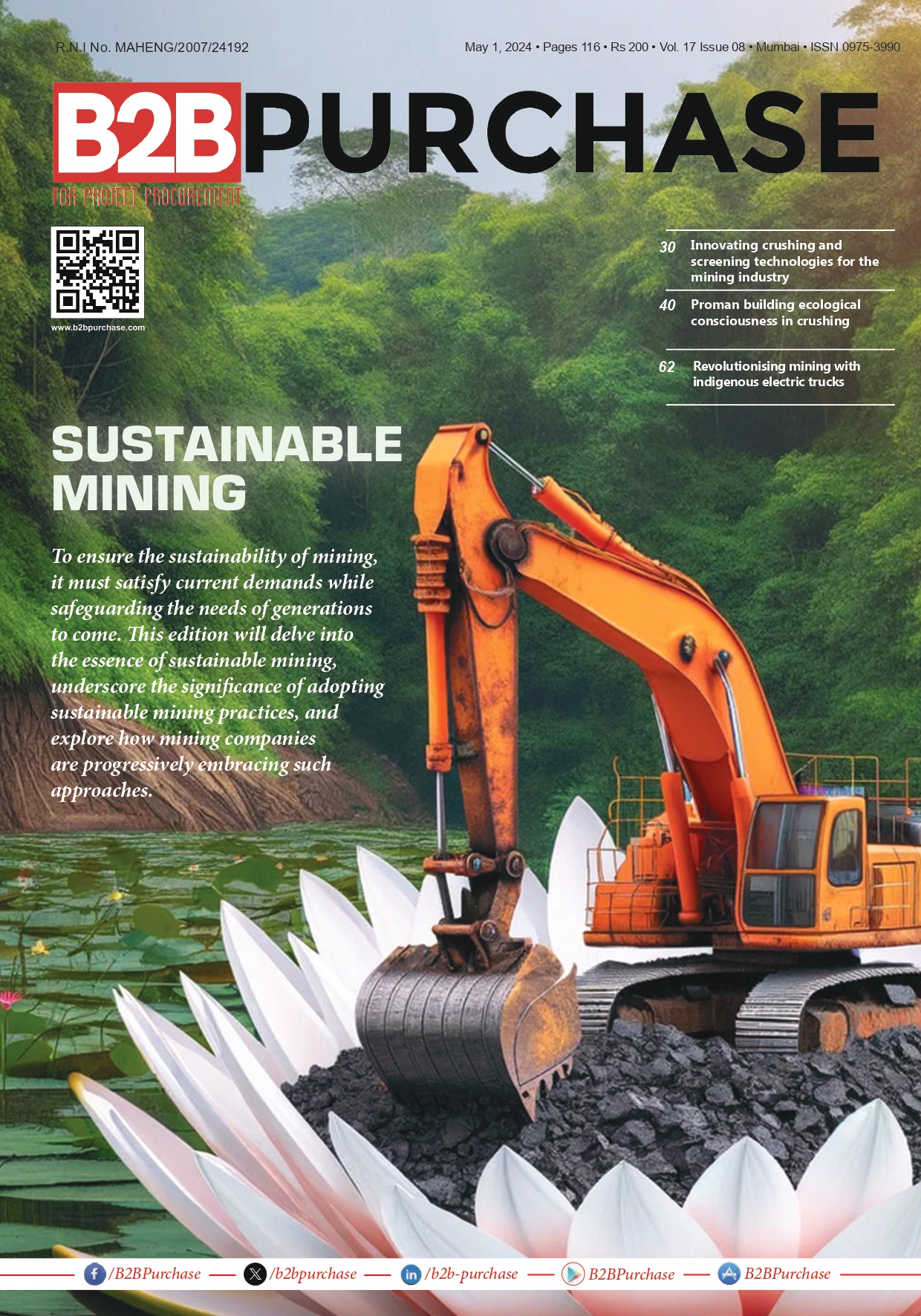The demand is coming from segments like construction and e-commerce, we expect the Indian medium and heavy trucks industry to register non-linear growth in 2021 with an increase of upto 50-80 per cent over 2020, says Satyakam Arya, CEO & MD, DICV.
Which segment do you feel will augment the CV recovery cycle in India and how soon do you see that happening?
We have been witnessing a recovery in the medium and heavy-duty commercial vehicle segment from September 2020. We expect the Indian medium and heavy trucks industry to register non-linear growth in 2021 with sales of between 150,000 and 200,000 units, up 50-80 per cent over 2020, before returning to a linear growth rate in 2022. The demand is coming from segments like construction and e-commerce.
Going forward, what kind of role do you see AI and IoT playing in the CV sector with respect to the logistics sector, considering it involves different stakeholders?
Telematics technology has already started reshaping the Indian trucking industry, offering a range of benefits for fleet managers, drivers and customers.
BharatBenz’s ‘Truckonnect’ is an excellent example. Based on Daimler’s global platform that already connects over 300,000 trucks worldwide, Truckonnect lets customers remotely monitor all key performance indicators including utilization, fuel and Adblue consumption, fleet health and driver behaviour. This entire data is made available to the user through an online analytics dashboard. All the BharatBenz trucks are equipped with Truckonnect. It allows fleet managers to optimize driver performance, increase fuel efficiency, and reduce downtime. That apart, vehicle owners are also supported by a customer assistance centre.
We believe future supply chains will turn digital, this transformation will be augmented by the use of robotics, Internet of Things, AI and other technologies to make them more resilient. Moving on, we will continue to focus on providing safer and more modernized trucks, ensuring industry-leading fuel efficiency, safety, comfort and reliability. We will also intensify our focus on digitalization for our customers.
In recent times, we have witnessed a rise in infrastructure projects, how do you feel it will benefit the CV sector? The demand for commercial vehicles is directly dependent on the economy. Higher activity in construction, real estate, infrastructure, mining and other sectors that generate payload boosts demand for CVs. The Indian government is actively investing in infrastructure related projects which have bettered demand for heavy-duty trucks from the construction segment.
With the announcement of infrastructure for roadways, we believe the demand for BharatBenz products in the construction tipper segment will improve further. However, we still need to understand the actual infrastructure spends in the state government’s budgets that will help create buoyancy in the market.
The push towards increasing national highway corridors will also help improve inter-state connectivity; thereby creating a stimulus for fresh demand in urban transportation.
What is your feedback on the recently presented Union Budget, how do you think it will impact the CV sector?
Through the budget, the Indian government has continued to stress the importance of Atmanirbhar Bharat. DICV welcomes the government’s decision of introducing the voluntary vehicle scrapping policy and the budget allocation for the road projects under the Bharatmala program.
While the scrappage policy has been announced, details are needed to understand the direct benefit to the auto sector in terms of demand generation. If incentives are not sufficient, then voluntary scrappage schemes might not be as effective as intended. Nevertheless, the policy could create some additional demand for both passenger and commercial vehicles and provide access to raw materials for the auto industry at an optimal cost.
On the other hand, import duties on auto parts have been increased to 15 per cent. In the short-term, this move is expected to affect the entire auto supply chain owing to higher costs. The government could also look at stabilizing fuel prices in the country.
Kindly tell us about your product portfolio for 2021?
BharatBenz is known for offering solutions suited to the dynamic needs of customers and society. Given that we are living in the Covid era, the pace at which these needs change has multiplied. BharatBenz’s new range of Commercial Vehicles is characterized by its safety, high performance, fuel efficiency, excellent reliability, and low maintenance cost. The new portfolio helps customers excel in their businesses and benefit society.
With the new generation of BharatBenz CVs, we are looking to move away from the traditional tonnage classification. Instead, we will focus on creating ‘the best truck for every need’, customizing vehicles for user applications and targeting specific sectors such as e-commerce.
DICV will be rolling out its ‘Future Mobility’ strategy in 2021, showing the roadmap for innovation and technology in the commercial vehicle industry.
How do you see the movement towards non-fossil fuels vehicles in India?
Daimler Trucks is involved in the development of alternative fuels. These are important means of reducing emissions and becoming less dependent on fossil fuels. Daimler has a clear, future-proof strategy for businesses and consumers alike with a variety of alternative fuel options.
The way to the fuel of the future leads from fossil-based diesel to BTL (Biomass To Liquid = fuel from biomass) and finally to hydrogen for fuel cell-powered vehicles. Being a part of the global network, we have access to Daimler’s knowledge and can adapt these technologies depending on the market requirement.
Daimler already has several electric vehicles in its commercial vehicle line-up around the world and these can be adapted for Indian use once the market is ready with the necessary infrastructure (e.g. charging stations) and government support.
Cookie Consent
We use cookies to personalize your experience. By continuing to visit this website you agree to our Terms & Conditions, Privacy Policy and Cookie Policy.


















